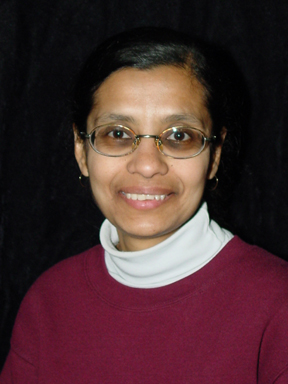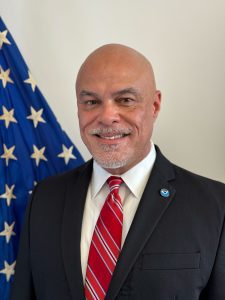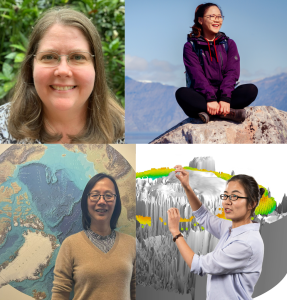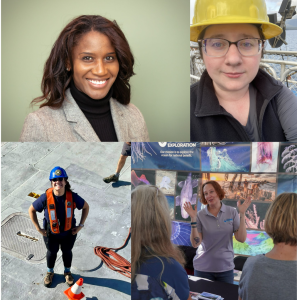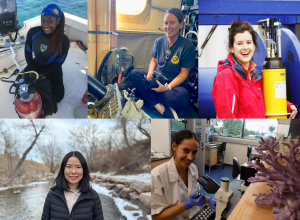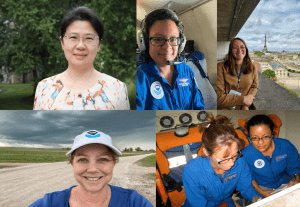To celebrate Women’s History Month, we asked women throughout NOAA Research who make lasting impacts in scientific research, leadership, and support from the field to the office to share how their work contributes to NOAA’s mission of Climate Resilience and preparing for a Climate-Ready Nation. This article highlights an interview with Jasmin John, Deputy Director of the Ocean Chemistry and Ecosystems Division at NOAA’s Atlantic Oceanographic and Meteorological Laboratory (AOML).
Our conversation follows:
What does climate resilience or climate-ready nation mean to you? What would you want people to know about NOAA’s work on climate resilience?
Being climate resilient means preparing for, and recovering from, changes and impacts related to climate change. This means being able to anticipate and plan, as well as the ability to bounce back, be flexible, and adaptable. NOAA’s work on climate resilience embodies its mission of science, service, and stewardship. It builds on the agency’s history of understanding climate and the risks of climate change (e.g. through its observational records and climate and ecosystem modeling efforts), and its new focus on climate equity and access – meaning all communities will be prepared to respond and adapt in the face of climate-related threats, so that we can become a truly climate-ready nation.
What projects or research are you working on now, and how does your work contribute to climate resilience?
My research focuses on understanding the legacy effects of climate change, and the impacts of potential mitigation strategies, on the oceans, coastal regions, and our fragile marine ecosystems. To do this, I utilize global and regional coupled carbon-climate models and run simulations under future climate change and idealized climate mitigation scenarios. These simulations can help gauge the ‘reversibility’ of the climate system, as well as the efficacy of, and impacts associated with, mitigation strategies. Evaluation of the modeled responses can also aid in assessing short and long-term benefits and risks at regional and local scales, enabling communities to better prepare and manage for climate and ecosystem changes associated with climate change and mitigation strategies.
What do you enjoy most about your work?
What I enjoy most about my work is making a difference. Both in my roles as a leader, mentor and coach through helping others develop and grow, as well as my role as a scientist collaborating with others to understand climate change issues and provide climate model data that can help inform decision-making.
What challenges have you faced as a woman in your career/field and how have you overcome them?
There were very few female climate modelers when I started out, and intersectionality also came into play for me – e.g. being an immigrant with a multicultural background, being underrepresented, not having a Ph. D. I experienced compounded impacts of multiple barriers and stressors. I didn’t have mentors and role models, and encountered obstacles such as not being seen as a leader and a ‘real’ scientist, along with hostile work environments. To me, the word courage means resilience, and tapping into this ability to persevere, endure, and ‘rise from the ashes’, along with hard work, determination, and staying true to my values, is what helps me overcome the challenges I encounter.
What gives you hope, either with regard to science, your field in NOAA, or in general?
I’m delighted to see NOAA’s focus on diversity, equity, inclusion, and accessibility both internally and externally. Within NOAA, I hope these efforts lead to a sense of belonging for everyone in the organization. Externally, NOAA’s environmental justice efforts are a pathway to provide climate science and services to help the most vulnerable and underserved communities become more climate resilient.
Special thanks to Jasmin John for participating in this interview for Women’s History Month at NOAA.
